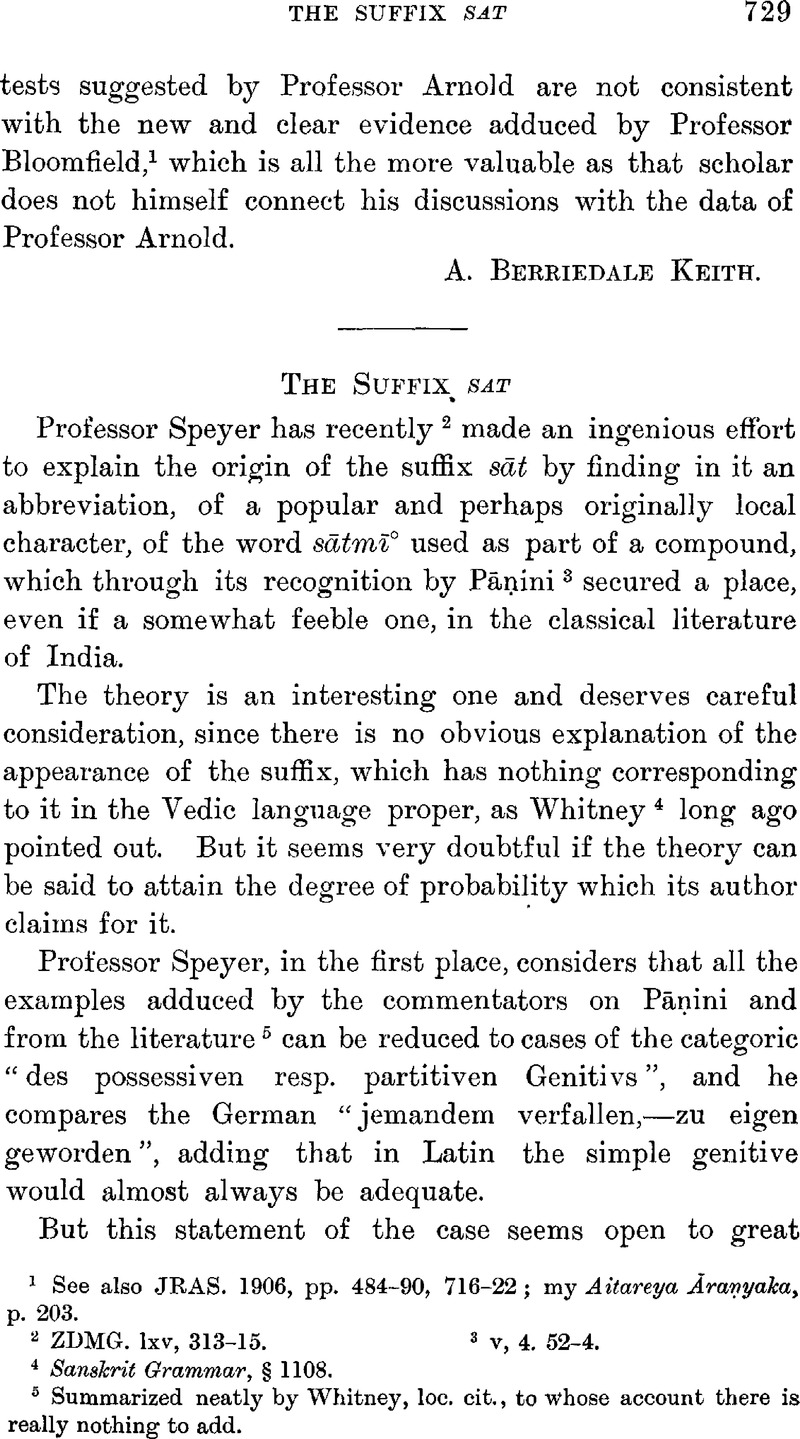No CrossRef data available.
Article contents
Abstract

- Type
- Miscellaneous Communications
- Information
- Copyright
- Copyright © The Royal Asiatic Society 1912
References
page 729 note 1 See also JRAS. 1906, pp. 484–90, 716–22; my Aitareya Āraṇyaha, p. 203.
page 729 note 2 ZDMG. lxv, 313–15. 3 v, 4. 52–4.
page 729 note 3 Sanskrit Grammar, § 1108.
page 729 note 4 Summarized neatly by Whitney, loc. eit., to whose account there is really nothing to add.
page 730 note 1 ii, 1. 13; Hi, 3. 44.
page 731 note 1 For the references see St. Petersburg Dictionary, s.vv.; Speyer, , Sanskrit Syntax, § 309Google Scholar.
page 731 note 2 xi, 5. 6. 9.
page 731 note 3 Sāyujya is used with much the same sense.
page 732 note 1 xii, 2328 (a late passage).
page 732 note 2 vii, 8687.
page 733 note 1 See the St. Petersburg Dictionaries, s. v. sātmī, and ProfessorSpeyer's, own quotations, ZDMG. lxv, 314Google Scholar.
page 733 note 2 Cf. also Speyer, , Vedische und Sanskrit Syntax, p. 46Google Scholar, n. 1.
page 733 note 3 xi, 80.
page 733 note 4 v, 23. 8.
page 733 note 5 iv, 1. 10. 3.
page 733 note 6 xvi, 7.
page 733 note 7 ii, 5. 2.
page 733 note 8 ii, 7. 7.
page 733 note 9 v, 37.
page 733 note 10 vi, 6. 5. 10. Eggeling, , SBE. xli, 259Google Scholar, renders “burn thou to ashes”.
page 733 note 11 St. Petersburg Dict. s.v. Maṣmaṣā; Bloomfield, , SBE. xlii, 455Google Scholar.
page 734 note 1 Cf. Wackernagel, , Altind. Gramm. i, 18Google Scholar; Macdonell, , Vedic Grammar, p. 431Google Scholar.
page 734 note 2 See St. Petersburg Dict. s.v.
page 734 note 3 Possibly the fact that the s is not liable to lingualization is to be connected with the fact that sat in sat kṛ is not liable to change as not being an ordinary suffix.


